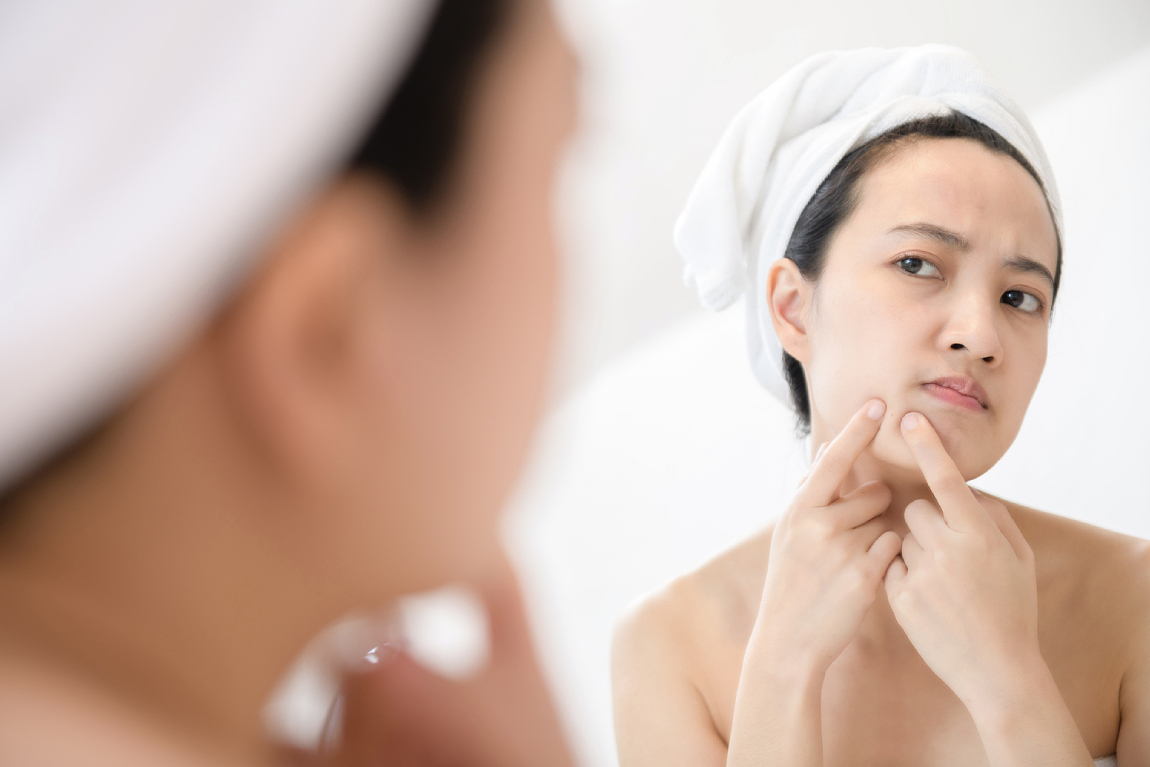
We’ve all been there – standing in front of the mirror, staring at an annoying pimple that’s begging to be popped. The urge is strong, but before you give in, it’s essential to understand why popping pimples at home can cause more harm than good. While it may feel satisfying in the moment, popping pimples can lead to a variety of skin issues, including scarring, infection, and more. In this article, we’ll dive into the reasons why you should avoid popping pimples at home and explore safer alternatives to manage your acne.
1. Infection and Bacterial Spread
One of the most significant dangers of popping pimples is the risk of infection. Our hands carry a variety of bacteria, and when you pop a pimple, you create an open wound that can easily become infected. This infection can spread to surrounding areas of the skin, potentially leading to more breakouts and a longer healing time.
Even if you wash your hands and use clean tools, there’s still a risk of pushing bacteria deeper into the skin. This can exacerbate the problem, causing the pimple to worsen rather than heal.
2. Scarring and Hyperpigmentation
Popping pimples can cause lasting damage to the skin, resulting in scars or dark spots that can take months, if not years, to fade. When you pop a pimple, you risk breaking the skin’s surface, leading to an open wound. The body then works to heal this wound by producing more collagen, which can create a raised scar (known as an ice pick or hypertrophic scar) or darken the area (post-inflammatory hyperpigmentation).
These scars may not only take a long time to fade but can also be difficult to treat. This is especially frustrating when you’re trying to achieve an even skin tone or clear skin. Instead of popping pimples, it’s better to leave them alone and let your skin heal naturally.
3. Worsening Inflammation
When you pop a pimple, you’re essentially forcing the contents (such as sebum, dead skin cells, and bacteria) deeper into the skin. This can lead to increased inflammation, redness, and swelling in the affected area. The more you irritate the pimple, the longer it will take to heal, and the more visible it will become.
Excessive pressure on the skin can also lead to new breakouts in the surrounding area. Rather than improving your skin, popping pimples can worsen the overall appearance of your complexion.
4. Delayed Healing Process
Rather than speeding up the healing process, popping pimples typically delays it. By forcing the pimple to pop, you interfere with the skin’s natural healing mechanisms. The pimple may heal slower than if left untreated, and you risk the formation of new pimples as a result of the trauma caused by popping.
Additionally, when you pop a pimple, you can cause the formation of deeper cystic acne, which is much harder to treat and often requires professional intervention.
1. Spot Treatments
Instead of popping pimples, use targeted acne treatments that can help reduce the size and inflammation of pimples. Spot treatments containing ingredients like benzoyl peroxide, salicylic acid, or sulphur can help to dry out pimples and reduce swelling. These treatments work by targeting the bacteria that cause acne and preventing future breakouts.
2. Facial Treatments
For persistent acne or regular breakouts, it’s wise to consider a professional acne facial treatment. Acne facial treatments are specifically designed to target acne-causing bacteria and prevent future breakouts. These facials typically include deep cleansing, extractions (done by professionals), and soothing masks to reduce inflammation.
3. Use Non-Comedogenic Skincare Products
Using non-comedogenic skincare products is vital if you want to prevent new pimples from forming. Non-comedogenic products are specifically formulated to not clog pores, which can lead to the development of acne. Look for products labelled as non-comedogenic, especially if you have acne-prone skin.
4. Seek Professional Help
If you’re struggling with persistent acne or don’t know how to manage your pimples effectively, it’s best to consult a dermatologist or skincare expert. Professional treatments can help target the underlying causes of acne and improve your skin’s overall texture and appearance.
Popping pimples at home may seem like a quick solution, but it can lead to lasting damage, including scarring, infection, and worsening acne. Instead of popping pimples, focus on a skincare routine for acne-free skin, non-comedogenic products, and regular facials.
If you’re looking for professional help, consider visiting Adonis Skincare for personalised acne facials or acne-targeted treatments. With the right care, you can keep your skin clear and healthy without the risks associated with popping pimples.
For more information, contact us today!
Get first access to our latest products, promotion & events.